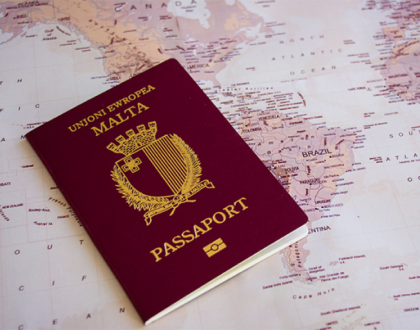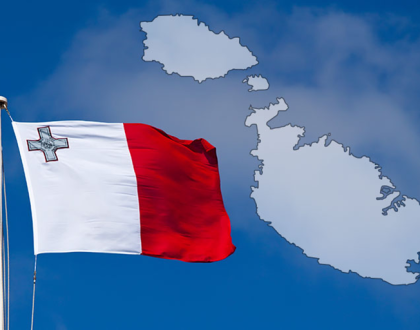Malta’s Regulatory Challenges – Online Casinos in the Crosshairs

It's vital to understand the evolving landscape of online gambling regulations in Malta, a jurisdiction long regarded as a hub for online casinos. Recently, the Maltese Gaming Authority has faced pressure to tighten oversight amid rising concerns about player protection, money laundering, and the overall integrity of the gaming industry. This blog post investigates into the implications of these regulatory challenges for both operators and players, highlighting potential impacts on Malta's reputation as a leader in the online gambling market.
Overview of Malta's Online Casino Landscape
Before delving into the regulatory challenges, it's important to recognize Malta as a prominent hub for online casinos. The island's strategic location, favorable tax structures, and robust legal framework have attracted numerous operators, making it a preferred destination for gaming licenses. As a result, Malta has become synonymous with online gambling, hosting a wide array of casinos that cater to a global audience.
Historical Context
For decades, Malta has positioned itself as a leading jurisdiction for online gaming. The introduction of the Remote Gaming Regulations in 2004 marked a pivotal moment, establishing a comprehensive licensing regime that fostered industry growth. Over the years, Malta's regulatory framework has evolved, adapting to technological advancements and changing market dynamics, solidifying its reputation in the gaming sector.
Current Market Trends
Landscape trends in Malta's online casino sector reflect a dynamic and rapidly changing environment. The introduction of innovative technologies, such as live dealer games and mobile gaming platforms, has significantly influenced user engagement, attracting a broader audience. Furthermore, operators are increasingly focusing on sustainability and responsible gaming, responding to growing consumer demands and regulatory expectations.
To remain competitive, Malta's online casinos are leveraging data analytics to personalize user experiences and enhance customer retention. Additionally, with the rise of cryptocurrencies, many operators are beginning to accept digital currencies as a payment method, appealing to a tech-savvy demographic. This shift highlights the industry's adaptability to new trends and the continued evolution of Malta as a preeminent online gambling jurisdiction.
Regulatory Framework
The regulatory framework governing online casinos in Malta is robust and multifaceted, designed to ensure fair play and consumer protection. The Malta Gaming Authority (MGA) oversees all gaming activities, implementing comprehensive regulations that adapt to evolving market conditions. This framework aims to maintain Malta's reputation as a reputable iGaming hub while balancing the interests of both operators and players.
Licensing Requirements
With stringent licensing requirements, online casinos must navigate a thorough application process to operate legally in Malta. Applicants need to demonstrate financial stability, professional integrity, and adequate technical infrastructure, ensuring they meet the high standards set by the MGA.
Compliance Obligations
Regulatory obligations extend beyond licensing, encompassing a range of compliance measures that operators must adhere to continuously. These include regular audits, risk assessments, and reporting mechanisms aimed at upholding security and transparency in operations.
It is important for online casinos to maintain compliance with the MGA's requirements, as failure to do so can result in significant penalties or revocation of their licenses. Operators must implement effective internal controls, staff training programs, and responsible gaming initiatives. Furthermore, they are required to report suspicious activities, ensuring they remain vigilant against money laundering and fraud. This continual commitment to compliance guarantees a safe gaming environment for players and reinforces Malta's reputation in the global online gaming industry.
Key Challenges Facing Regulators
Assuming the rapid growth of Malta's online casino industry continues, regulators are faced with significant challenges in maintaining a fair and safe gaming environment. The evolving landscape demands comprehensive oversight to address issues ranging from compliance with consumer protection laws to ensuring operational transparency among licensed operators. Additionally, balancing innovation with regulation poses a constant struggle, as authorities must adapt to new technologies and trends in the gaming sector.
Taxation Issues
On the surface, taxation issues seem straightforward; however, various online casinos operate under different licensing regimes, complicating revenue collection. The challenge lies in ensuring fair taxation across the board while incentivizing operators to remain compliant and invest in Malta. As competition increases globally, having a coherent and competitive tax strategy is vital for maintaining Malta's attractiveness as an online gaming hub.
Fraud and Money Laundering Concerns
The implementation of robust measures to combat fraud and money laundering is imperative for maintaining the integrity of Malta's online gaming sector. A comprehensive regulatory framework is needed to ensure all operators are diligent in their compliance practices and reporting processes.
Concerns surrounding fraud and money laundering in Malta's online casinos are rising as criminals may exploit the anonymity of digital transactions. In this context, regulators need to enhance know-your-customer (KYC) protocols and continually monitor operators for suspicious activities. Stricter compliance requirements, including thorough audits and reporting, are crucial in combating these risks. By fostering collaboration with financial institutions and international agencies, regulators can strengthen their defenses against money laundering schemes that undermine the legitimacy of Malta's thriving gaming industry.
Stakeholder Perspectives
After analyzing the regulatory landscape, it becomes clear that various stakeholders have differing perspectives on Malta's online casino regulations. Governments focus on compliance and consumer protection, while operators often express concerns regarding stiff competition and regulatory burdens. Industry experts strive for a balanced approach that fosters innovation while ensuring responsible gaming practices. These perspectives contribute to an evolving dialogue about the optimal regulatory framework for Malta's online gambling sector.
Government and Regulatory Bodies
Regulatory bodies in Malta are tasked with overseeing the online gaming sector, ensuring compliance with EU standards and protecting consumers. Their primary aim is to establish a secure environment for operators and players alike, which necessitates a dynamic and adaptable regulatory approach. As market conditions change and new technologies emerge, these bodies continually refine policies to address emerging challenges while promoting economic growth.
Operators and Industry Experts
Government regulations shape the operational landscape of online casinos, influencing everything from licensing fees to advertising and responsible gaming initiatives. Operators frequently express their need for clearer guidance and streamlined processes to maintain competitiveness while adhering to strict compliance measures.
A collaborative relationship between operators and regulatory bodies is crucial for sustainable growth in Malta's online gaming sector. Operators often seek more transparent communication channels with regulators to navigate the complexities of compliance. Industry experts advocate for a synergistic approach, emphasizing that feedback from operators can inform policy adjustments, ultimately fostering an environment that balances regulatory needs with business sustainability and innovation.
Impact of International Legislation
All stakeholders in Malta's online casino sector are feeling the pressure from international legislation. As global authorities establish stricter regulations, local operators must adapt to remain compliant, which can strain resources and affect competitiveness. The evolving landscape of international law serves as both a challenge and a catalyst for innovation within Malta's regulated gaming environment.
EU Regulations
Legislation originating from the European Union has significant ramifications for Malta's online gaming industry. As a member state, Malta is required to align its regulatory practices with EU directives, aiming to ensure consumer protection, promote fair competition, and facilitate cross-border business. Consequently, this can lead to more rigorous compliance demands for local operators, influencing operational strategies and costs.
Global Standards and Their Implications
On a broader scale, the emergence of global standards is reshaping the online gaming landscape, impacting Malta significantly. As international bodies establish benchmarks for responsible gaming and player security, local operators must adopt these standards to maintain their license and reputation. This shift necessitates substantial enhancements in technology and operational practices, influencing the competitive dynamics of the local market.
Understanding the implications of global standards requires a thorough examination of the evolving regulatory landscape. These standards not only dictate compliance for online casinos but also establish best practices that contribute to responsible gaming and consumer protection. As operators strive to meet these benchmarks, they may encounter increased operational costs while also unlocking opportunities for innovation and improved customer experiences. Thus, adhering to global standards is pivotal in positioning Maltese online casinos as industry leaders in a highly competitive market.
Future of Online Gambling in Malta
Many industry experts believe that the future of online gambling in Malta will be shaped by a balance between regulatory compliance and market flexibility. As the regulatory framework evolves, operators will likely need to adapt to new guidelines that prioritize consumer protection while maintaining a competitive edge. Enhanced collaboration between the government and the gambling sector could pave the way for innovative solutions, ultimately sustaining Malta's status as a leading online gaming hub.
Potential Reforms
One critical area for potential reforms is the enhancement of regulatory measures to ensure responsible gaming practices. By focusing on player protection and transparency, Malta can strengthen its reputation while fostering sustainable industry growth. The inclusion of stakeholder feedback will be instrumental in shaping these reforms to address the evolving challenges faced by the online gambling sector.
Industry Predictions
On the horizon, industry predictions point towards a growing emphasis on technology-driven solutions, such as artificial intelligence and blockchain, to improve compliance and consumer engagement. As online gambling continues to expand, Malta's regulatory bodies will need to remain agile, adapting to international trends while ensuring local operators remain competitive and secure.
Predictions suggest that Malta could see a shift towards more collaborative regulatory frameworks, in which stakeholders, including operators, players, and regulatory authorities, work together to develop innovative solutions. This collaborative approach will not only enhance compliance but also drive consumer trust and loyalty. Moreover, as the online gambling industry faces increasing global competition, Malta will need to lean into technological advancements and adapt its regulations to remain an attractive destination for operators and players alike.
To wrap up
Drawing together the various facets of Malta's regulatory challenges, it is evident that the landscape for online casinos is becoming increasingly complex. As authorities aim to balance consumer protection, responsible gaming, and the growth of a thriving industry, operators must navigate stringent regulations and compliance demands. These changes are imperative for ensuring the sustainability of Malta's reputation as a reputable online gaming hub, but they also impose significant operational hurdles for businesses. Thus, continuous adaptation and proactive engagement with regulators are paramount for the future success of online casinos in Malta.
FAQs
What are the main regulatory challenges facing Malta's online casinos?
Malta's online casinos are grappling with increased scrutiny over player protection, money laundering prevention, and maintaining industry integrity. The Malta Gaming Authority (MGA) is tightening regulations to address these issues, which include more rigorous compliance checks and enhanced monitoring of operators.
How does the regulatory framework in Malta ensure fair play and consumer protection?
The Malta Gaming Authority oversees the online gambling sector with a comprehensive set of regulations. These include strict licensing requirements, regular audits, and compliance measures aimed at ensuring transparency and protecting consumers from fraud and unfair practices.
What impact do international regulations have on Malta's online gambling industry?
International regulations, particularly from the European Union and global standards, require Malta to align its practices with broader benchmarks for responsible gaming and player security. This can increase operational costs but also drives innovation and maintains Malta's competitive edge.
How are Malta's online casinos adapting to new technologies and market trends?
Malta's online casinos are embracing new technologies like live dealer games, mobile platforms, and cryptocurrencies. These innovations are aimed at enhancing user experience and staying competitive, while also meeting evolving consumer expectations and regulatory requirements.
What are the potential future reforms in Malta's online gambling regulations?
Future reforms in Malta may focus on strengthening responsible gaming practices, improving regulatory measures, and incorporating stakeholder feedback. There could also be a shift towards technology-driven solutions and a more collaborative regulatory approach to ensure sustainability and industry growth.
Michael
With over 20 years experience in web design, SEO and website promotion I always give you an expert advice in regard to any issues related to your Site Design, SEO, Internet Marketing, Promotion, Backlinks, Site Content. In order to help you find out what is missing or can be improved and get higher rankings in Google and more traffic.
Recommended Posts

Sportingtech Boosts Security with Continent 8
October 4, 2024

Legal Win for Malta’s Citizenship Program
October 4, 2024

Why iGaming Brands Choose Malta
October 4, 2024




